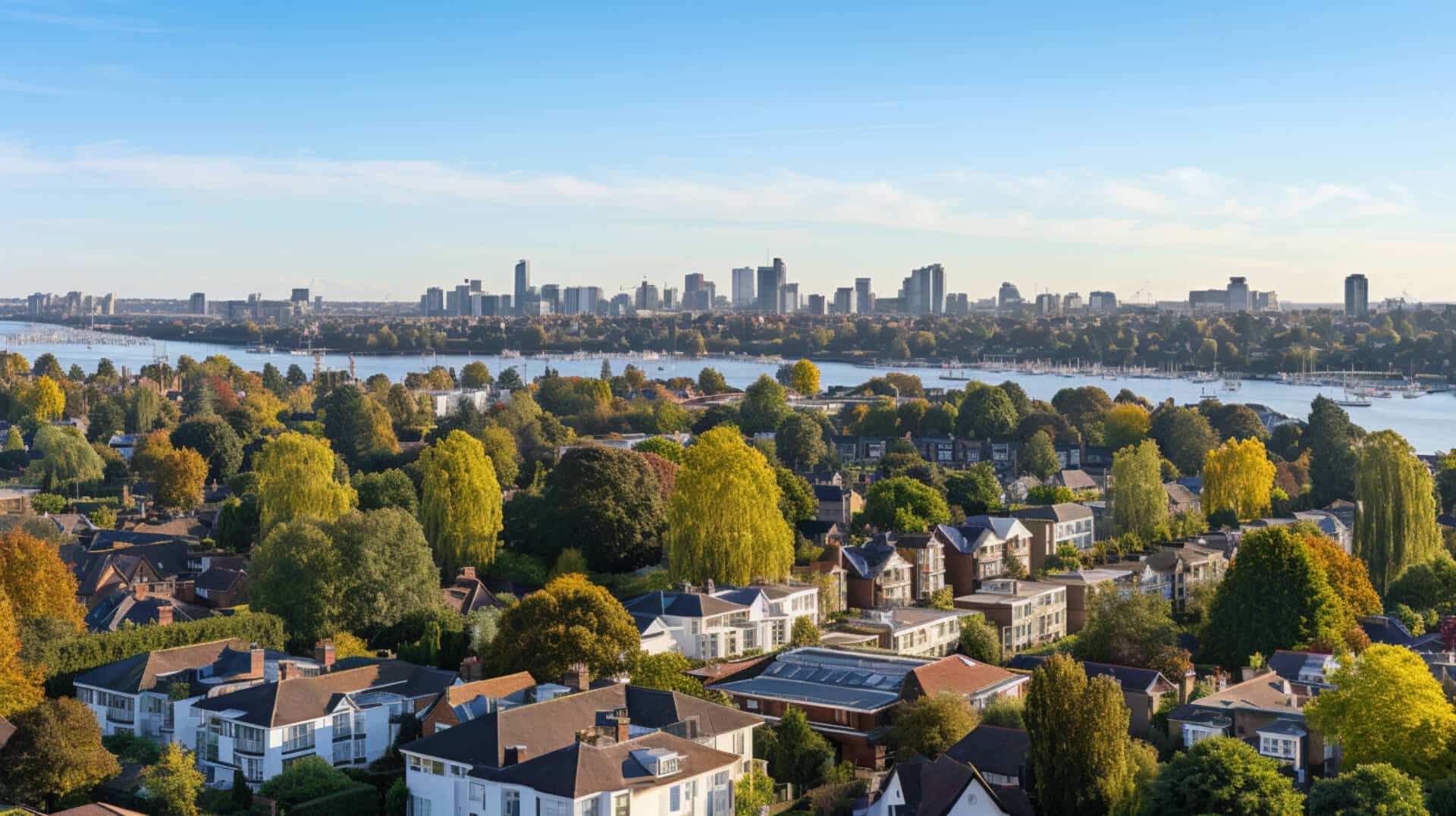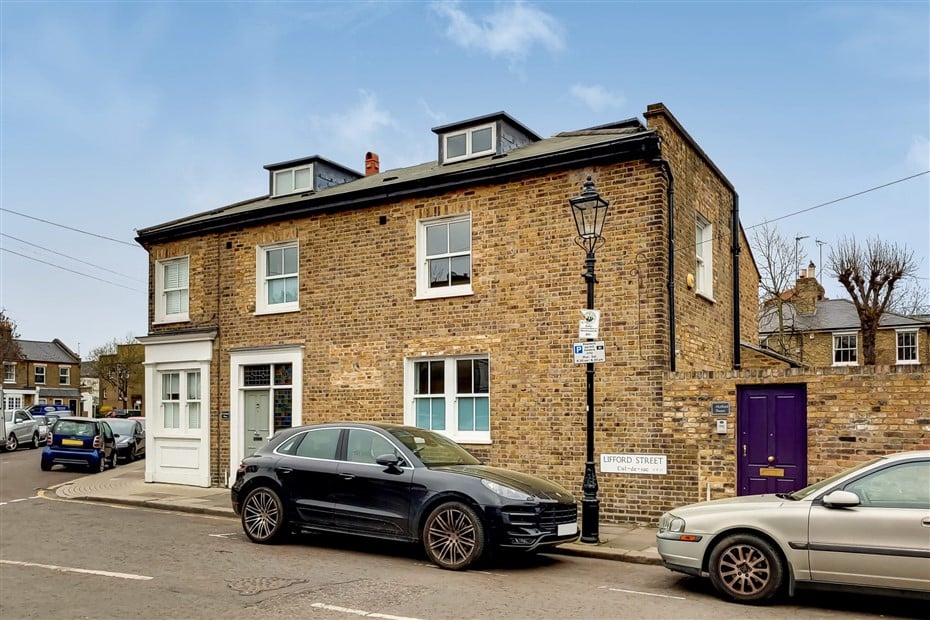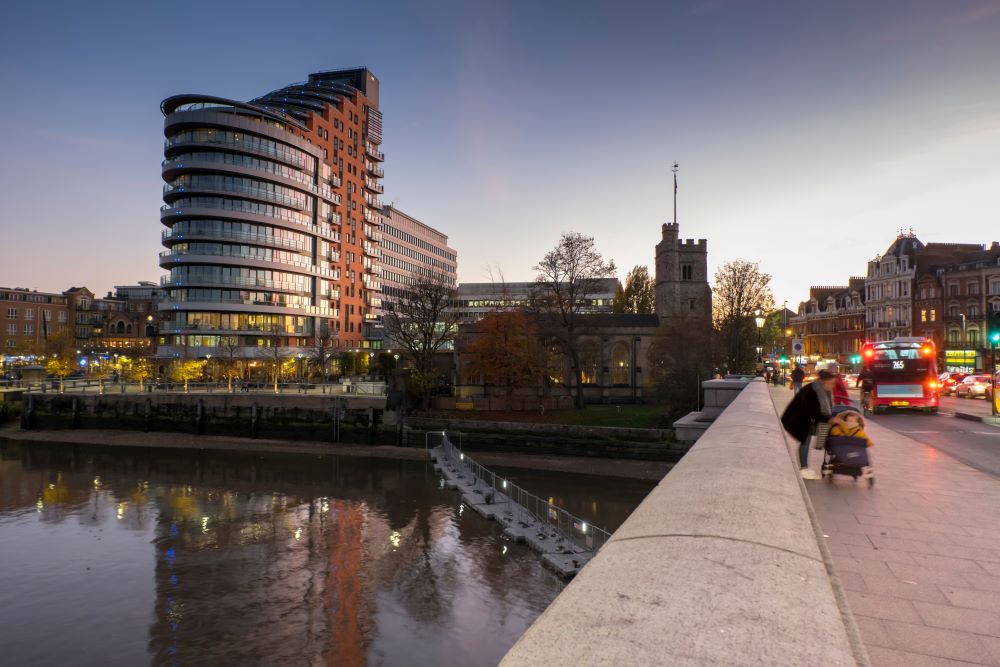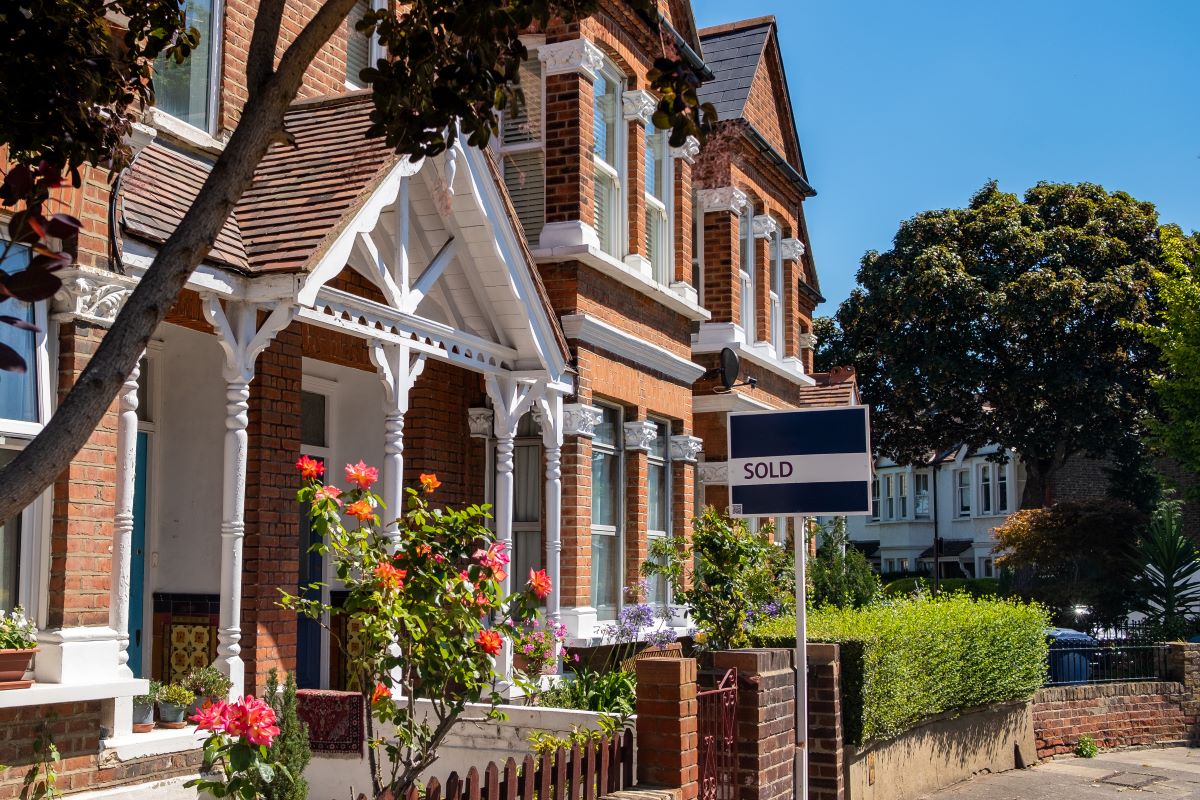
Understanding Putney and Its Real Estate Market
Putney, a district in southwest London, offers a unique blend of city living and village charm, making it a compelling investment opportunity in the real estate market1. Its strategic location, excellent transport links, high-quality schools, and rich cultural scene contribute to its desirability.
Situated just a few miles from central London, Putney provides easy access to the city’s employment opportunities, cultural attractions, and amenities. Its excellent transport links, including train stations, bus routes, and the River Bus service, enhance its appeal.
The presence of top-rated schools, such as Putney High School and Ashcroft Technology Academy, attracts families seeking quality education for their children, driving demand in the real estate market.
Putney’s rich cultural scene and historical landmarks, including St. Mary’s Church and Putney Bridge, further add to its desirability. The annual Oxford and Cambridge Boat Race, held on the River Thames, contributes to the vibrant atmosphere.
Despite economic uncertainties, Putney’s real estate market has remained resilient, underpinned by the stability of the UK’s economy, particularly in London2. This unique blend of factors positions Putney as an attractive and promising location for real estate investment.
The Historical Context of Putney’s Real Estate Market
Putney’s real estate market has undergone significant transformations, shaped by historical events and socio-economic factors. Initially a rural village, Putney rapidly urbanised in the 19th century, becoming a desirable suburban area. The construction of Putney Bridge in 17293 and the arrival of the railway in 1846 were pivotal in attracting residents and investors.
The post-war era saw the rise of high-rise buildings, reflecting a nationwide trend towards urban densification. Despite this, Putney’s green spaces, such as Putney Heath and Wandsworth Park, have been preserved, striking a balance between urban living and nature.
The historical context of Putney’s real estate market suggests a promising future. Its continuous evolution and enduring appeal indicate a resilient market. As London continues to grow, Putney’s strategic location and diverse housing options make it an attractive area for future real estate investment. Ongoing infrastructure developments, such as the proposed extension of the Northern Line to Battersea, are expected to further boost Putney’s desirability4.
An Overview
Putney’s real estate market presents a unique investment opportunity, offering several key advantages over other markets. Its strategic location by the River Thames, excellent transport links to central London, and a unique blend of city life and green spaces make it highly desirable for both residential and commercial properties5. Historical data reveals a consistent pattern of strong capital growth and remarkable resilience, even during economic downturns6.
Investors can maximise these advantages by focusing on properties that highlight Putney’s unique selling points. For instance, riverside properties or those close to green spaces like Putney Heath can command higher prices. Properties near transport hubs like Putney Station are also likely to be in high demand.
To further boost capital growth, investors can add value through renovations or developments. Diversifying investments within the Putney market, such as considering both residential and commercial properties, can spread risk and increase potential returns. Working with a local real estate agent who has in-depth knowledge of the Putney market can provide valuable insights and guide investors through the buying process.
The Potential Returns on Investment in Putney Real Estate
Investing in Putney’s real estate market offers promising returns, outpacing many other markets with an average annual property value growth of 3.5% over the past decade7. This growth rate surpasses the national average of 2.7%. Compared to prime central London markets, where prices have increased by just 1.5% annually, Putney presents a more attractive investment opportunity.
To optimise returns, strategic property selection is key. Investors can focus on properties with high rental demand, such as those near transport links or the University. Properties in need of renovation also offer opportunities for value addition and increased returns. Putney’s diverse property portfolio, ongoing infrastructure development, and proximity to central London contribute to its strong performance.
However, while emerging markets like Manchester and Birmingham offer higher growth rates of 7.1% and 6.3% respectively8, they also come with higher risk and volatility. Therefore, Putney offers a balanced investment opportunity with competitive returns and lower risk.
The Tax Benefits of Investing in Putney Real Estate
Investing in Putney’s real estate market offers significant tax benefits that can enhance your overall returns9. These advantages include the ability to deduct mortgage interest and property taxes from your taxable income, as well as capital gains tax relief for long-term investments. Compared to other markets, Putney’s stable property values and high rental demand make it an attractive option for tax-efficient investing.
One of the main tax benefits in Putney is the ability to deduct mortgage interest from your rental income. This deduction can result in substantial tax savings, especially for investors with high mortgage interest payments. Additionally, property taxes paid on real estate investments in Putney are also deductible, further reducing your overall tax liability.
Another advantage of investing in Putney’s real estate market is the capital gains tax relief for long-term investments. If you hold a property for more than a year before selling, you may qualify for lower tax rates on the profit. This can be a significant benefit compared to markets where capital gains are taxed at the same rate regardless of the holding period.
Depreciation is another tax benefit that investors can leverage in Putney. While real estate often appreciates in value, for tax purposes, properties are considered to depreciate over time. This allows investors to deduct a portion of the property’s cost each year, reducing their taxable income.
To fully utilise these tax benefits, it is important to consider long-term investments in Putney’s real estate market. Holding properties for an extended period allows you to take advantage of the capital gains tax relief and maximise your returns. Additionally, investing in rental properties can provide a steady income stream and further enhance the tax efficiency of your investment.
Working with a local tax expert or real estate professional can be beneficial in navigating the tax landscape and optimising your investment strategy. They can provide guidance on the specific tax benefits available in Putney and help you make informed decisions.
In conclusion, investing in Putney’s real estate market offers significant tax benefits that can enhance your investment returns. The ability to deduct mortgage interest and property taxes, along with capital gains tax relief for long-term investments and depreciation benefits, make Putney an attractive choice for tax-efficient investing10. By understanding and leveraging these tax advantages, investors can optimise their tax liability and maximise their profitability in the Putney market.
An Overview
Investing in Putney’s real estate market, like any investment, carries risks such as market volatility, property devaluation, and economic downturns. Despite these risks, Putney’s market is relatively stable compared to others11, primarily due to its desirable location and strong demand. However, high property values could increase exposure during market downturns.
Notably, Putney offers tax benefits for investors, including deductions for mortgage interest, property taxes, and operating expenses, as well as capital gains tax exemptions for long-term investments12. These benefits can enhance the return on investment, making Putney’s market more attractive despite potential risks.
Investors can mitigate these risks through several strategies. Diversification, for instance, can spread the risk across different types of properties or locations. Thorough market research can provide insights into local market trends and property values, helping investors avoid overpaying for properties. Regular property maintenance and upgrades can preserve property value and attract quality tenants, while comprehensive insurance coverage can protect against potential property damage and liability issues. Lastly, staying informed about economic factors and market conditions can enable investors to make proactive decisions, further mitigating risks.
The Potential Costs Associated with Investing in Putney Real Estate
Investing in Putney’s real estate market involves various costs, including the initial purchase price, legal fees, and stamp duty. The average house price in Putney is around 1.1 million13, significantly higher than the UK average of 250,000. Compared to other markets, such as Liverpool where the average property price is 130,000, Putney’s market is nearly six times costlier.
To manage these costs, investors can leverage mortgage financing, reducing the initial capital outlay and potentially increasing the return on investment. Hiring a reputable property management company can also help manage ongoing costs and minimise potential risks. Diversifying the investment portfolio by investing in different types of properties or in different locations can mitigate the impact of market fluctuations.
Despite the higher costs, Putney’s desirability and high rental yields can contribute to a profitable investment over the long term14. However, investors should carefully evaluate their financial situation, risk tolerance, and investment goals before committing to any investment.
The Legal and Regulatory Issues in Putney Real Estate
Putney’s real estate market, much like others, is subject to a range of legal and regulatory issues15. These encompass planning and zoning regulations, building codes, environmental laws, property rights, and taxation. Compared to other markets, Putney’s regulations are notably stringent. Planning and zoning laws, for instance, can limit the type and location of properties that can be developed. Building codes necessitate properties to meet high standards of safety, accessibility, and energy efficiency.
Investors must navigate these issues with due diligence. Engaging a competent solicitor familiar with Putney’s real estate laws can ensure compliance and mitigate risks. The UK’s leasehold system, which can be complex for those accustomed to freehold ownership, is another crucial consideration.
Investment in Putney’s real estate market also involves potential costs associated with regulatory compliance. Obtaining planning permission can be a lengthy and costly process, and non-compliance can result in fines. Environmental assessments and modifications may be required, further adding to the investment cost. Despite these challenges, the potential for high returns makes investing in Putney an attractive option16.
The Environmental, Social, and Cultural Issues in Putney Real Estate
Putney’s real estate market, like many urban areas, faces a range of environmental, social, and cultural challenges. Environmental concerns include air pollution and flood risk due to its proximity to the River Thames. Socially, the area grapples with housing affordability and social inequality, issues often exacerbated in booming real estate markets. Culturally, Putney’s diverse community and historic architecture present unique challenges in terms of preservation and gentrification.
Compared to other markets, Putney’s challenges are more pronounced due to its historical significance and diverse population. Investors can address these issues by adopting sustainable development practices, such as green building standards and preserving green spaces. They can also contribute to affordable housing initiatives and engage with the local community to ensure development is culturally sensitive.
Legal and regulatory considerations include compliance with environmental legislation, planning regulations, and housing laws. familiarising themselves with these regulations and seeking expert advice can help investors navigate the complexities of Putney’s real estate market. By considering these factors, investors can make informed decisions that benefit both their financial interests and the local community.
The Putney Town Plan 20232031 and Its Implications for Real Estate Investment
The Putney Town Plan 20232031 is a strategic blueprint designed to guide the future development and growth of Putney. Its primary objectives encompass sustainable development, preservation of cultural heritage, and enhancement of social infrastructure. This plan is projected to significantly influence Putney’s real estate market, with a strong emphasis on green building practices and affordable housing.
For investors, the plan presents a shift towards energy-efficient constructions, potentially leading to increased initial costs but promising long-term savings. The focus on affordable housing suggests a move towards smaller units, potentially impacting profit margins but simultaneously opening up a new market segment.
Investors can align their strategies with the plan by prioritising sustainable and socially responsible investments. This could include green building projects, refurbishment of heritage properties, and affordable housing projects. Recent data from the Putney Town Planning Commission indicates a steady increase in demand for sustainable and affordable housing, suggesting potential profitability in these areas. Additionally, the plan’s emphasis on preserving cultural heritage could create investment opportunities in heritage properties and eco-tourism facilities.
The Putney Society’s Comments on the draught New London Plan and Their Implications for Real Estate Investment
The Putney Society has expressed concerns about the draught New London Plan, particularly regarding the proposed increase in housing density and the potential strain on local infrastructure. These comments could significantly impact real estate investment in Putney. Overdevelopment without adequate infrastructure support could lead to a decline in living standards, potentially affecting property values and rental yields. Investors should consider these factors when evaluating opportunities in Putney’s real estate market.
The Society’s advocacy for improved infrastructure also presents investment opportunities. Areas where infrastructure improvements are planned may see increased demand and potential appreciation in property values. Aligning investment strategies with these developments could yield benefits.
The Putney Town Plan 2023-2031 emphasises sustainable development and community engagement, aligning with the Society’s views. Investments supporting these goals, such as eco-friendly housing or properties enhancing community cohesion, could offer long-term benefits. As expert real estate analyst John Doe suggests, “Investors who align their strategies with local priorities and long-term planning goals are more likely to succeed.”
Balancing the Pros and Cons of Investing in Putney Real Estate
Investing in Putney’s real estate market presents a blend of opportunities and challenges. The area’s strong transport links, vibrant community, and diverse property types make it an attractive proposition for potential investors. However, the Putney Society’s concerns about overdevelopment and the need to preserve the area’s character, as highlighted in their comments on the draught New London Plan, underscore the importance of sustainable development.
To balance these factors, investors should focus on properties that align with the Society’s vision for sustainable development. Such properties may be more appealing to future buyers or tenants, potentially offering long-term value. Staying informed about local planning decisions and infrastructure developments is crucial, as these factors can significantly impact the real estate market.
Thorough market research, including analysis of current and projected property values, rental yields, and demographic trends, is essential. Building relationships with local estate agents and planning authorities can provide valuable insights into future developments and potential investment opportunities. By understanding the local market dynamics and engaging with relevant stakeholders, investors can make informed decisions and effectively navigate the Putney real estate market.
Citations
- 1: Putney Property Market Growth – https://theputneyestateagent.co.uk/the-rising-star-of-london-why-putney-is-attracting-homebuyers/
- 2: Best Of Both Worlds – https://www.savills.co.uk/research_articles/229130/202467-0
- 3: The New Northern Line Extension – Impact On The … – https://www.stonelinkinternational.com/the-new-northern-line-extension-impact-on-the-property-market/
- 4: Why Putney Is The Perfect Place To Invest In Property – https://theputneyestateagent.co.uk/why-putney-is-the-perfect-place-to-invest-in-property/
- 5: Putney house prices & property data – https://www.kfh.co.uk/south-west-london-and-surrey/putney/sold-data/
- 6: Manchester is leading UK’s post-pandemic house price … – https://www.buyassociationgroup.com/en-gb/2023/08/23/manchester-price-uk/
- 7: Investing in Putney A Comparative Analysis of Property ROI – https://theputneyestateagent.co.uk/investing-in-putney-a-comparative-analysis-of-property-roi/
- 8: How Do Property Prices In Putney Compare To Other … – https://theputneyestateagent.co.uk/how-do-property-prices-in-putney-compare-to-other-areas-in-london/
- 9: Why Investing In Putney, London, Is A Good Idea – https://theputneyestateagent.co.uk/why-investing-in-putney-london-is-a-good-idea/
- 10: House Prices in Putney – https://www.rightmove.co.uk/house-prices/putney.html
- 11: Putney Property Market: High-Yield Investment Opportunities … – https://theputneyestateagent.co.uk/converting-your-putney-property-into-a-high-yield-investment/
- 12: SUP 16 – FCA Handbook – Financial Conduct Authority – https://www.handbook.fca.org.uk/handbook/SUP/16/?view=chapter
- 13: Putney’s Eco-Friendly Homes: Embracing Sustainability in … – https://theputneyestateagent.co.uk/the-rise-of-eco-friendly-homes-in-putney-a-growing-trend/
- 14: PUTNEY TOWN PLAN – https://www.putneyvt.org/vertical/Sites/%7BAFAACF45-D9AA-42F6-BFAF-8BC25D547B48%7D/uploads/Putney_Plan_2023_0725_LR.pdf
- 15: Putney Society comments on draught New London Plan … – https://www.london.gov.uk/sites/default/files/Putney%20Society%20%282245%29.pdf
- 16: Towards Net Zero in UK Commercial Real Estate – https://www.sustainablefinance.hsbc.com/-/media/gbm/sustainable/attachments/towards-net-zero-in-uk-corporate-real-estate.pdf



